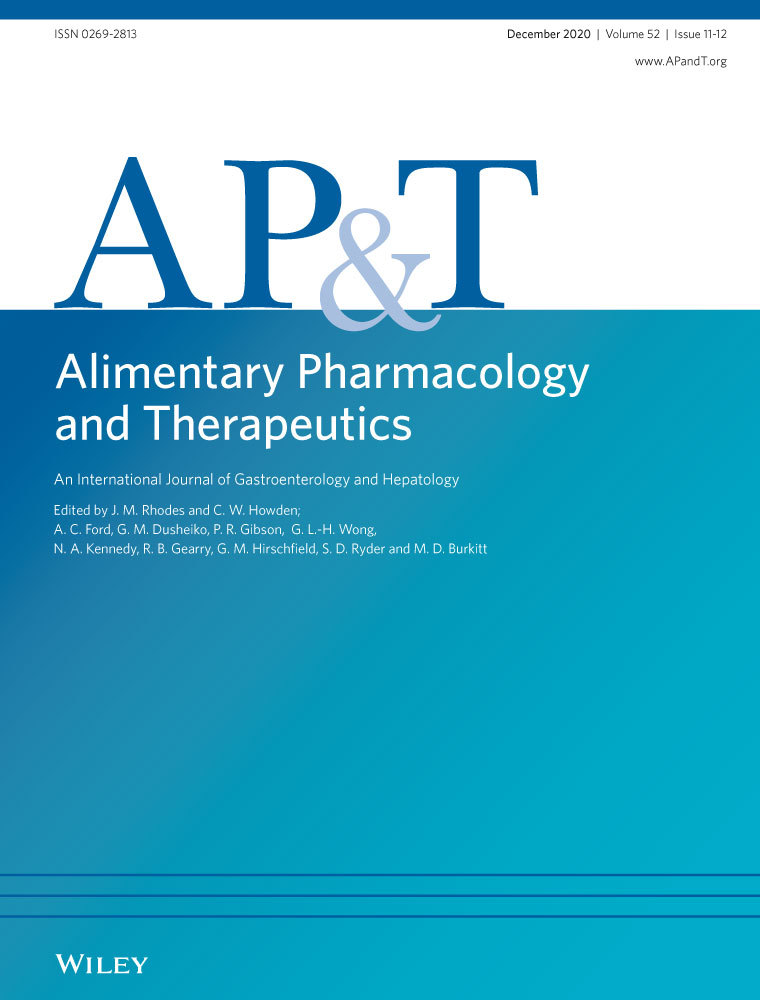Letter: synergistic role of gut flora with aspirin to prevent colorectal cancers
Shuling Li and Fei Peng contribute equal to the manuscript and should be considered as the combined first author.
Abstract
LINKED CONTENT
This article is linked to Prizment et al and papers. To view these articles, visit https://doi.org/10.1111/apt.16013 and https://doi.org/10.1111/apt.16141
Editors,
We read with great interest the paper by Prizment et al about the change of gut microbial composition and bacterial taxa with daily aspirin 325 mg or placebo among healthy volunteers.1 This showed a potential mechanism for the effect of aspirin in reducing colorectal cancer (CRC) risk and should inspire further studies. Other studies have shown complex interactions between aspirin and gut flora.2, 3 We are particularly interested in the possible use of microbiota-based interventions to improve aspirin use for CRC prevention.
Aspirin's chemoprevention effects against CRC have been demonstrated in several clinical studies, but the time-lag effects would require individuals to take it for several years.4 Prizment's study showed that short-term aspirin intake could induce beneficial gut flora remodelling in healthy volunteers. This would decrease the unnecessary exposure risk to patients and unlock an opportunity to achieve such preventive effects with few or no side effects, such as haemorrhagic stroke and gastrointestinal bleeding. Furthermore, aspirin resistance might also hinder the expanded clinical use of aspirin in the population, which could be caused by abundance of some aerobic gut microbes degrading aspirin and decreasing its plasma levels.3
Gut flora modulation could be synergistic with aspirin in reducing CRC risk as follows: probiotics could be used to reduce the risk of small intestinal enteropathy caused by aspirin,5 and use of specific probiotics, prebiotics or faecal microbiota transplantation could alleviate or reverse aspirin resistance by targeted modulations.3, 6 Finally, re-setting the inflammatory microenvironment by inhibiting the formation of trimethylamine N-oxide, a gut microbial metabolite and CRC risk factor,7, 8 could delay or stop the adenoma-cancer progression.
In conclusion, combination of gut flora modulation and aspirin intake might provide high-risk patients with thorough protection against CRC, but there is still much to be learned.9 In particular, there is a need to identify the optimal combinations and dosage of gut microbes based on each individual patient's medical condition in order to maximise synergistic effects and minimise side effects.
ACKNOWLEDGEMENT
Declaration of personal interests: None.




